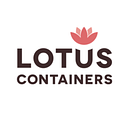Importance of Container Number in the Shipping
Shipping containers, often known as conex boxes, are crucial for global cargo transport. They carry diverse goods worldwide, creating a challenge in distinguishing them when they reach the same destination daily. This is where unique container numbers come in. A container number is a special alphanumeric code assigned to each container. It contains key details like owner, contents, and shipment accuracy. These codes enable quick and accurate tracking, ensuring smooth coordination and management throughout shipping.
Container numbers streamline logistics by establishing ownership, content accuracy, and facilitating efficient supply chain management. Amid a sea of containers arriving daily, these codes are essential for orchestrating seamless global trade.
Role of ISO container markings
They are most commonly referred to as ISO identification markings. ISO container markings designate numbers for containers used for domestic and international purposes. It is an alphanumeric representation that consists of letters and symbols. Each container has a unique marking to differentiate it from other containers. These markings display information regarding the container’s content, weight, type, and owner. The container doors are generally assigned to display these markings so that it is visible before opening the container. The container markings are divided into different sections to signify and convey all the necessary information. The information display ranges from-
- Name of the container owner or lessor
- Container number
- Combined data plate
- Check Digit
- CSC plate
- ISO code
- Max gross weight
- Tare
- Max payload
All the information mentioned above can be deciphered by looking at the container door. This makes it easier for consignees, shipping companies, and inspection officers to identify the right shipping container and avoid container rollovers. It is extremely useful in international trade as a rail of shipping containers enters and exits the depot.
Importance of container number
It is a part of container markings and is generally seen written at the top right corner on container doors. Container numbers are unique identification codes of 11 digits painted on the container. It is a standard international measure that the container number consists of 7 numbers and four letters. These unique reference codes are assigned by the International Standards Organisation (ISO) through the Bureau International des Containers (BIC) channel. A container number depicts the size and type of container. These identification marks benefit international shippers, buyers, transporters, and other parties involved.
The documents drafted for the international trade business through shipping lines reflect the container number. This way, it becomes easier to identify the location of your shipment. The bill of lading is a consignment receipt that keeps track of the container number. With the increase in demand for container tracking, shipping companies have integrated various technologies such as IoT and blockchain to offer the real-time location of the container. Stakeholders can track the shipping containers by specifying the container number.
Components of a container number
If a container number is broken down, it will entail the following parts-
- Owner code- A container number begins with letters followed by numbers. The first three capital letters are the owner’s identification. The BIC issues owner codes on behalf of ISO. Different brands and companies use distinct color codes painted on the container.
- Product’s group code- Each intermodal container has a single capital alphabet signifying the group code, printed after the owner code. It can be U, J, or Z. U represents a container, J indicates attachable equipment, and Z signifies a chassis for transporting the container. Every piece of equipment used in intermodal transport has its own identification.
- Serial number- An owner can have millions of shipping containers and must assign a unique identification to every container. A serial number is a six-digit sequence code meant to reflect that it belongs to a certain owner.
- Check digits- A single-digit number, painted separately from the serial number, verifies the accuracy of the identification sequence. The check digit is enclosed in a box to visually separate it from the rest of the container code. The container number is input manually or remotely at terminal gates. A video camera captures the container number, which is then processed by character recognition software. The resulting digit is compared with the check digit on the container. If they match, the identification sequence is validated.
The container number holds immense significance in international trade as it defines the container and its content.
LOTUS Containers is a prominent provider of shipping container sales and leasing services worldwide. We offer various types of containers, including both new and used options, available in a range of sizes to cater to our clients’ diverse needs.”
